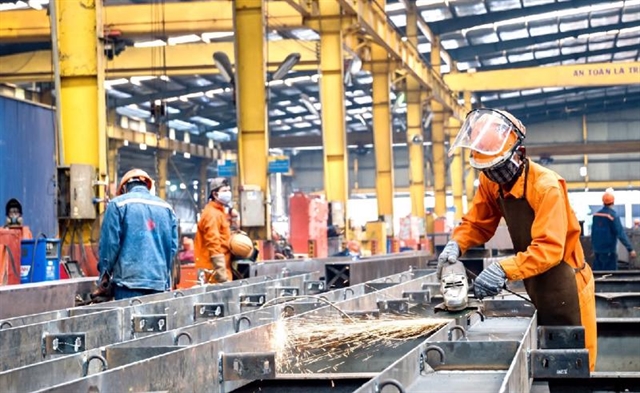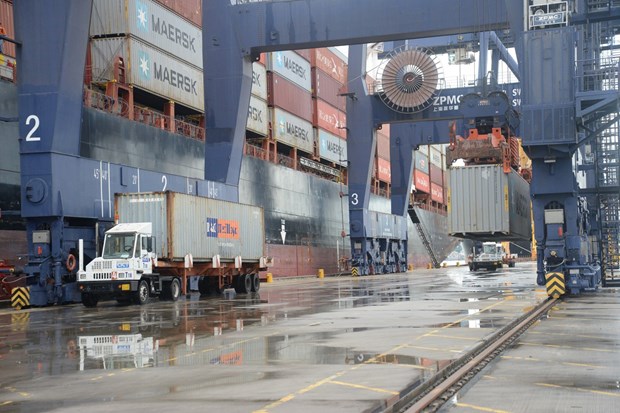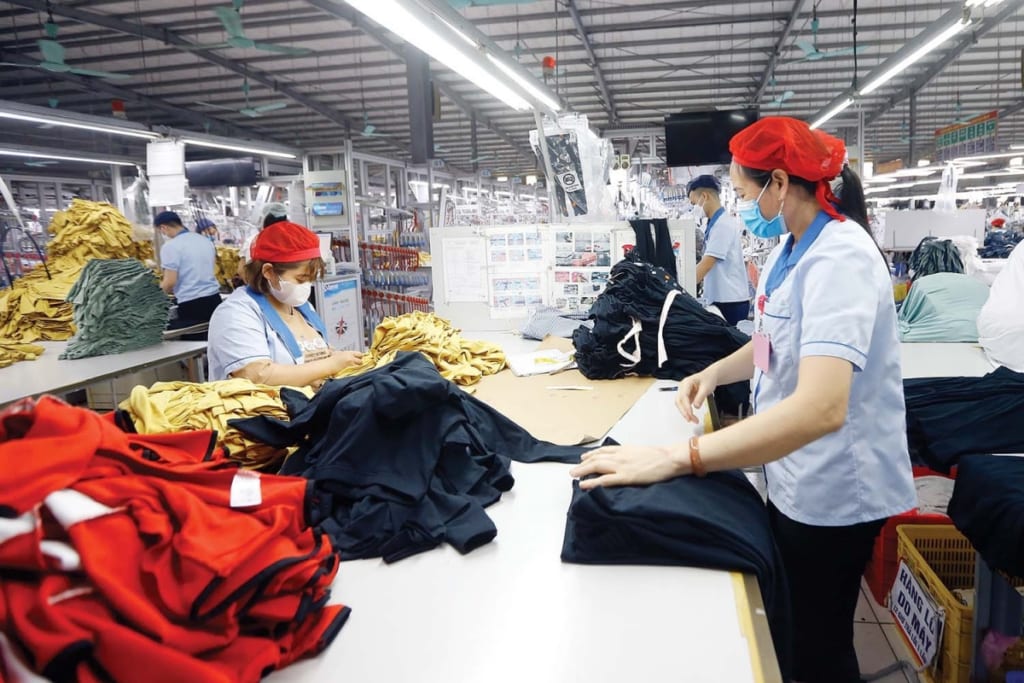Fabricators are essential to the creation of the metal structures that support global industries. From skyscrapers to airplanes, they shape, cut, and assemble metal parts to create everything from massive frameworks to intricate machine components. Over the last decade, Vietnamese fabricators have gained international recognition for their high-quality workmanship, precision, and ability to deliver on complex projects. Their expertise is now sought after in industries ranging from construction to automotive manufacturing and beyond.
In this article, we explore the pivotal role of Vietnamese fabricators in global manufacturing and infrastructure, examining their skills, the tools they use, and why they are in such high demand worldwide.
What Does a Fabricator Do?
Fabricators are skilled workers who create metal products by cutting, shaping, and assembling raw materials into finished parts or structures. Their work includes reading blueprints, using machinery to shape metals, and joining metal components through techniques like welding. Fabricators often work with materials such as steel, aluminium, and other alloys, transforming them into the specific shapes and sizes required for industrial projects.
Vietnamese fabricators play a critical role in industries like construction, automotive manufacturing, aerospace, and heavy equipment production. Their precision ensures that the metal components they create are safe, durable and fit the design specifications perfectly.
The Expertise of Vietnamese Fabricators
Vietnamese fabricators are renowned for their hands-on expertise, combining traditional skills with modern technology. They often undergo rigorous vocational training and gain experience with advanced machinery, which makes them adept at working on complex projects.
Precision Cutting and Shaping of Metal Components
Fabricators work with various cutting tools to ensure the metal components they create are accurate and durable. Vietnamese fabricators are particularly skilled in using tools like plasma cutters, CNC machines, and oxy-fuel torches to shape metals with exact precision. This level of precision is crucial in industries like construction and automotive manufacturing, where even the smallest error can lead to safety concerns or structural failure.
For instance, plasma cutting uses high-velocity jets of ionized gas to cut through thick metals. Vietnamese fabricators excel at this method, ensuring clean, accurate cuts that meet the required specifications. Similarly, CNC machines, which automate the cutting process using computer software, allow for exacting precision. Vietnamese fabricators have mastered this technology, which is essential in projects that require tight tolerances.
Welding and Assembly Skills
In addition to cutting and shaping metals, fabricators must also assemble and join metal parts. Welding is one of the primary techniques used to fuse metal pieces together. Vietnamese fabricators are well-trained in various welding methods, such as MIG (Metal Inert Gas) and TIG (Tungsten Inert Gas) welding, which are critical for creating strong, durable joints.
Fabricators work closely with welders, or in many cases, serve as both the fabricator and the welder. This dual skill set is highly valued in industries like shipbuilding and heavy machinery production, where fabricators must ensure that all metal parts are securely joined and structurally sound.
The Role of Vietnamese Fabricators in Global Manufacturing
Fabricators are key contributors to global manufacturing. From producing small mechanical components to fabricating large industrial parts, they play a vital role in the supply chain. Vietnamese fabricators are making their mark in industries such as automotive, aerospace, and heavy equipment manufacturing.
Automotive Industry Contributions
In the automotive industry, fabricators are responsible for creating metal components like car frames, chassis, and body panels. These parts must be fabricated with precision to ensure that vehicles are safe and perform well. Vietnamese fabricators have a reputation for delivering high-quality work in this sector, often producing components for international car manufacturers.
Fabricators’ work is essential to the construction of a vehicle’s core frame. Each part must fit perfectly to ensure the overall safety of the vehicle. This is why automotive companies depend heavily on the skill and accuracy of Vietnamese fabricators, especially when it comes to custom parts or large production runs.
Aerospace and Heavy Machinery
The aerospace industry also relies on fabricators to produce parts for aeroplanes, helicopters, and spacecraft. These components need to be exceptionally precise because even a slight error can compromise the safety of the entire aircraft. Vietnamese fabricators are involved in the production of critical parts, including engine components, landing gear, and fuselage structures.
Similarly, in heavy machinery production, fabricators create parts for industrial machines, construction equipment, and mining tools. These components must withstand heavy loads and extreme conditions, making fabrication accuracy and durability critical. Vietnamese fabricators are known for their ability to meet the high standards required in these industries.
Vietnamese Fabricators in the Construction Industry
Fabricators are essential to the construction industry, where they produce the metal frameworks and structural components that support buildings, bridges, and industrial facilities. Vietnamese fabricators play a significant role in creating steel frameworks, trusses, and load-bearing structures that are crucial to modern construction.
Creating Structural Components for Buildings and Bridges
In construction, fabricators are responsible for creating the structural steel components that support the weight of buildings and infrastructure. Vietnamese fabricators are skilled in producing steel beams, girders, and columns that are essential for the stability of bridges, skyscrapers, and other structures. Their work ensures that these components meet the required safety standards and can withstand environmental stresses like wind and earthquakes.
For example, in bridge construction, fabricators must ensure that each steel girder is precisely cut and assembled to handle the forces exerted on the bridge. Mistakes in the fabrication process could lead to structural weaknesses, making the role of the fabricator critical in ensuring the safety and longevity of these structures.
Sustainability in Construction
As the construction industry moves toward more sustainable practices, Vietnamese fabricators are also contributing to the creation of eco-friendly structures. By using recyclable metals and improving the efficiency of the fabrication process, they help reduce the carbon footprint of construction projects. In addition, fabricators play a role in creating energy-efficient systems, such as HVAC ductwork, that improve a building’s sustainability.
The Growing Demand for Vietnamese Fabricators in Global Infrastructure Projects
As global infrastructure projects become more complex, the demand for skilled fabricators is increasing rapidly. Vietnamese fabricators are in high demand for their ability to deliver precise, high-quality work on tight deadlines.
International Demand for Skilled Fabricators
Countries worldwide are investing heavily in infrastructure, including transportation networks, industrial plants, and renewable energy projects. Vietnamese fabricators are increasingly sought after by international firms for their expertise and ability to work on large-scale projects. Their skill in working with advanced fabrication tools, coupled with their reputation for quality, makes them valuable to companies looking for reliable partners.
The adaptability of Vietnamese fabricators is another reason for their global demand. They can adjust to the specific needs of different projects, whether it involves working with different materials or operating under strict regulations.
Collaborating with Global Companies
Many international companies partner with fabrication firms in Vietnam to take advantage of the country’s skilled workforce. These partnerships often involve the production of custom metal parts for large infrastructure projects. Vietnamese fabricators play a key role in these partnerships, ensuring that the metal components meet both local and international standards.
Key Skills and Tools Used by Vietnamese Fabricators
Fabricators require a wide range of skills to succeed, from technical expertise to hands-on proficiency with advanced tools. Vietnamese fabricators are trained to operate a variety of machines that allow them to produce components with exceptional precision.
Tools of the Trade
Fabricators work with a variety of tools to cut, shape, and assemble metals. These tools include:
- CNC Machines: These computer-controlled machines allow fabricators to automate the cutting and shaping process. They provide precise cuts that meet exact design specifications.
- Plasma Cutters: Plasma cutters use a high-velocity stream of plasma to slice through thick metals quickly and accurately.
- Welding Machines: Welders join metal parts to ensure strong, durable connections. Fabricators often weld the components they create.
- Grinders and Sanders: After cutting and welding, fabricators use grinders and sanders to smooth the edges and surfaces of the metal components.
With these tools, Vietnamese fabricators can create components that meet the strict requirements of industries like aerospace, construction, and automotive manufacturing.
Challenges Faced by Vietnamese Fabricators
Fabrication is a demanding profession. Vietnamese fabricators often face challenges related to working conditions, precision, and safety.
Maintaining Precision Under Pressure
Fabricators are frequently under pressure to meet tight deadlines, especially in industries like construction and automotive manufacturing, where delays can be costly. Despite these time constraints, they must maintain a high level of precision to ensure that the parts they create fit perfectly into the final assembly. Vietnamese fabricators are known for their ability to balance speed with accuracy, delivering high-quality work even under pressure.
Working in Hazardous Environments
Fabrication involves working with heavy machinery and potentially dangerous materials, making safety a top priority. Vietnamese fabricators are trained to follow strict safety protocols, including wearing personal protective equipment (PPE) like welding masks, gloves, and steel-toed boots. They also receive training in how to operate machinery safely, reducing the risk of accidents.
Training and Career Path for Vietnamese Fabricators
Becoming a fabricator usually begins with a formal apprenticeship or vocational training program. Vietnamese workers often pursue certifications in welding, CNC operation, or specific fabrication techniques, which allow them to specialize and increase their job prospects.
Ongoing Education and Specialization
As technology evolves, many Vietnamese fabricators continue their education to stay competitive in the global job market. They may learn new fabrication techniques or specialize in specific areas, such as structural steel fabrication or high-precision machining. This ongoing education helps them adapt to the changing needs of industries like construction and manufacturing.
Conclusion: Vietnamese Fabricators as Essential Builders of Global Infrastructure
Fabricators are indispensable in industries that rely on metal structures and components. Vietnamese fabricators have proven their ability to deliver precision-made parts that meet the strict requirements of global markets. Their role in industries like construction, automotive, and aerospace highlights their importance in shaping the future of manufacturing and infrastructure.
With their technical expertise and strong work ethic, Vietnamese fabricators are poised to continue playing a key role in the development of global infrastructure for years to come.




